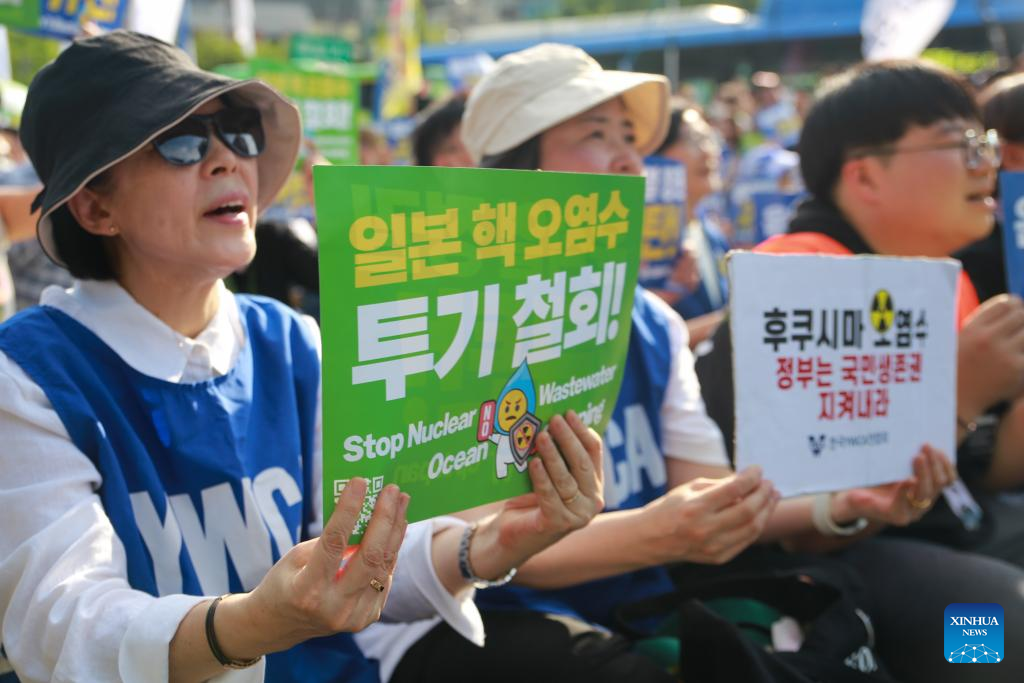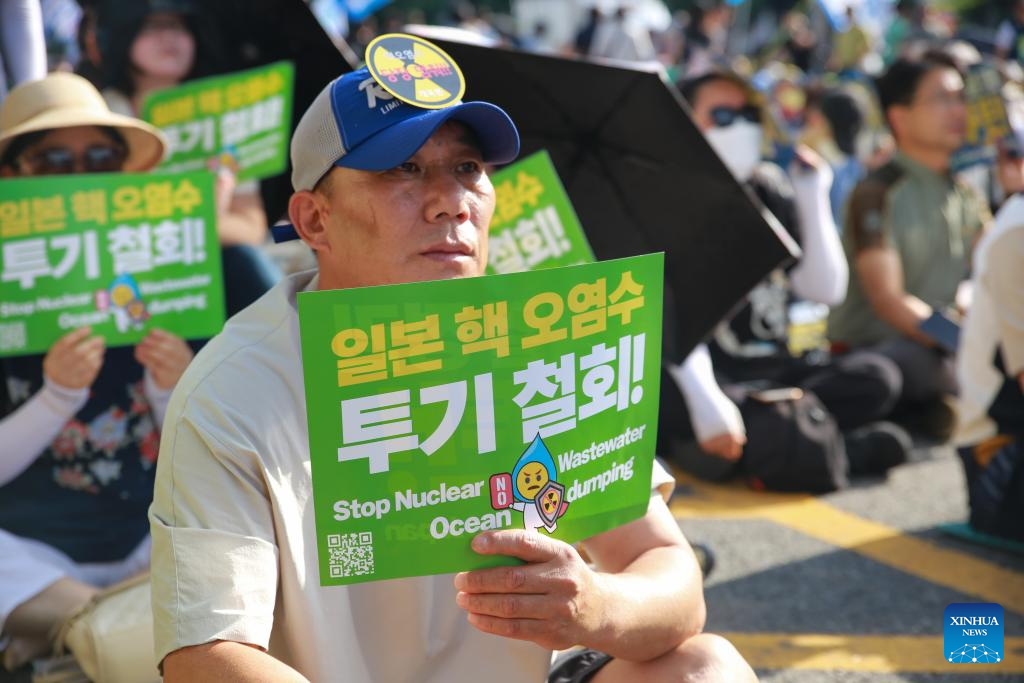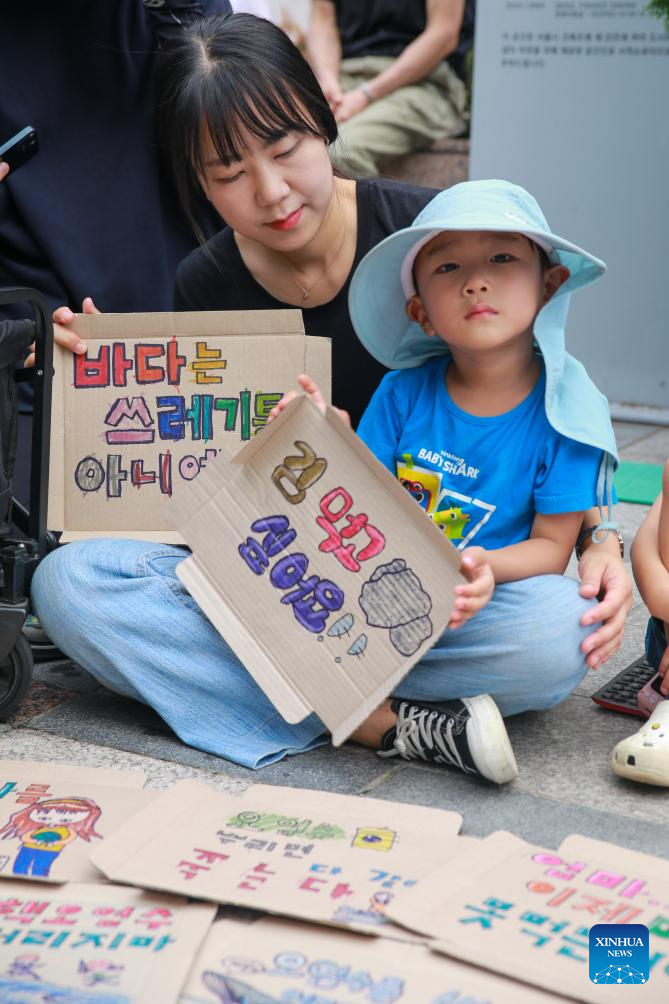
People attend a rally to protest against Japan's dumping of nuclear-contaminated wastewater into the ocean, in Seoul, South Korea, Sept. 2, 2023. (Photo by Yang Chang/Xinhua)
SEOUL, Sept. 2 (Xinhua) -- Thousands of South Korean people including fishermen, activists and politicians continued a weekend rally in central Seoul on Saturday to protest against Japan's dumping of nuclear-contaminated wastewater into the ocean.
The participants shouted slogans of "Immediately stop the marine dumping of radioactive wastewater" and "Prohibit import of all Japanese aquatic products," urging the South Korean government to file a lawsuit with the International Tribunal for the Law of the Sea against the Japanese government.
According to the Research View survey of 1,000 adults for two days through Aug. 30, 72.4 percent said they opposed Japan's marine dumping of the radioactive wastewater.
A total of 78.3 percent of respondents said South Korea should ban all seafood imports from Japan, and 67.4 percent replied that South Koreans should boycott Japanese products.
"Fukushima nuclear-contaminated wastewater has the nature of trash," Lee Seo-yoon, a mother of three children, said during the rally, adding that Japan regards the ocean as the largest and the cheapest trash bag.
Lee stressed that it would be absurd to hope that no one would be harmed after dumping the trash into the ocean, urging Tokyo to store the radioactive wastewater on its soil rather than dumping it in the sea.
"The ocean is the future of my family and the future of our descendants," said Kim Sam-ho, a fisherman who came from the country's southern coastal Wando County.
Kim raised his strong doubts about the safety of the radioactive wastewater, calling for the South Korean government to take necessary actions including supporting measures for fishermen.
"The major purpose of nuclear safety is to block radiation from reaching the environment and people," said Han Byung-sub, a nuclear expert who had worked at the Korea Atomic Energy Research Institute (KAERI) and the Korea Electric Power Corp. Engineering & Construction (KEPCO E&C).
Han noted that the proper measurement of radiation from Fukushima, involving groundwater flowing in and out of the destroyed reactor, was not carried out, urging the South Korean government to properly measure the radiation in waters off the country from now on.
Following the one-and-a-half-hour rally, the protesters marched about five km in downtown Seoul to the presidential office.
Struck by a massive earthquake and an ensuing tsunami in March 2011, the Fukushima nuclear power plant suffered core meltdowns and generated a massive amount of water tainted with radioactive substances from cooling down the nuclear fuel.
Japan started releasing the first batch of radioactive wastewater from the crippled Fukushima Daiichi nuclear power plant into the Pacific Ocean on Aug. 24. ■

People attend a rally to protest against Japan's dumping of nuclear-contaminated wastewater into the ocean, in Seoul, South Korea, Sept. 2, 2023. (Photo by Yang Chang/Xinhua)

People attend a rally to protest against Japan's dumping of nuclear-contaminated wastewater into the ocean, in Seoul, South Korea, Sept. 2, 2023. (Photo by Yang Chang/Xinhua)



